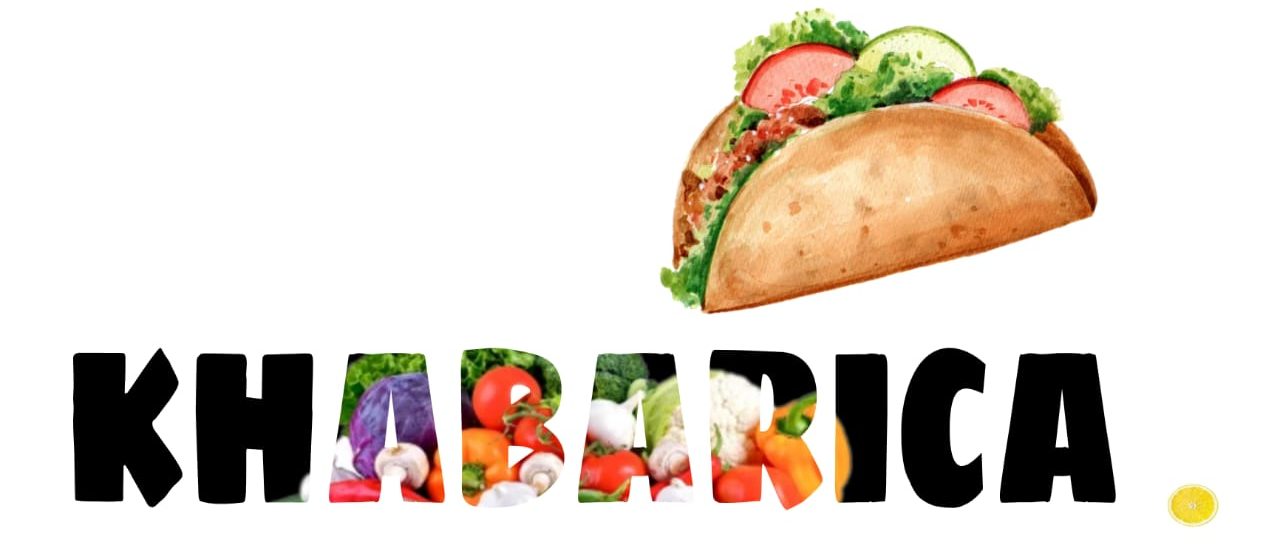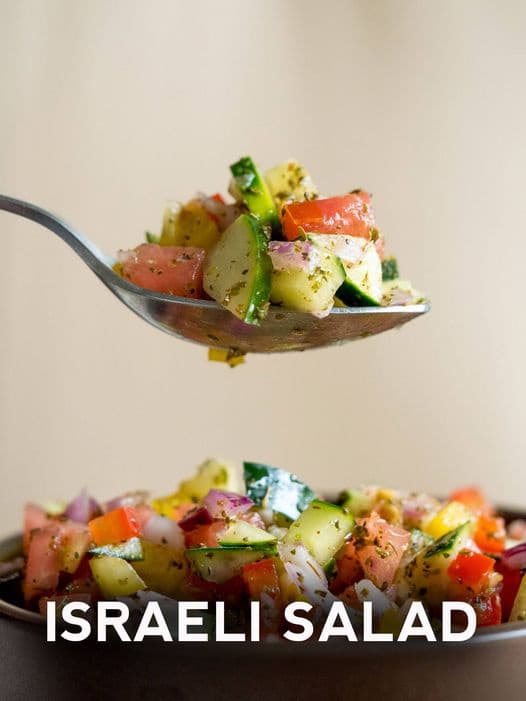The beauty of Israeli salad lies in its simplicity and freshness. To make this nutritious dish, you’ll need:
-
- Tomatoes
- Cucumbers
- Red or green bell peppers (optional)
- Red onion
- Fresh parsley
- Fresh mint leaves
- Olive oil
- Lemon juice
- Salt and pepper to taste
Preparation:
-
- Wash and dice the tomatoes, cucumbers, and bell peppers (if using).
- Finely chop the red onion.
- Chop the fresh parsley and mint leaves.
- Combine all the chopped vegetables and herbs in a large bowl.
- Drizzle olive oil and lemon juice over the mixture.
- Season with salt and pepper to taste.
- Toss everything together until well combined.
Why Israeli Salad is a Healthy Choice:
Israeli salad is not only delicious but also incredibly nutritious. It’s low in calories, high in fiber, and packed with essential vitamins and minerals. The fresh vegetables provide antioxidants, while the olive oil adds heart-healthy monounsaturated fats. Plus, it’s vegan, gluten-free, and suitable for various dietary preferences.
Israeli salad is a delightful and healthy addition to any meal. Its vibrant colors, crisp textures, and zesty flavors make it a perfect choice for a side dish or a light meal on its own. Whether you’re a seasoned chef or a beginner in the kitchen, this salad is easy to prepare and always a crowd-pleaser. Try making Israeli salad at home and savor the taste of the Middle East while enjoying its numerous health benefits.
Incorporating Israeli salad into your culinary repertoire not only expands your palate but also promotes a healthier lifestyle. So, give this recipe a try and experience the joy of this Mediterranean culinary gem.
Israeli salad is a popular Middle Eastern salad known for its fresh and healthy ingredients. It is low in calories and packed with essential nutrients, making it a nutritious choice for those looking to maintain a balanced diet. Here’s a breakdown of the nutritional components of Israeli salad:
1. Tomatoes:
- Tomatoes are rich in vitamins C and K.
- They also provide folate, potassium, and antioxidants, particularly lycopene.
- Lycopene has been associated with various health benefits, including reducing the risk of certain cancers and promoting heart health.
2. Cucumbers:
- Cucumbers are low in calories and a good source of hydration due to their high water content.
- They provide vitamins K and C, as well as potassium and fiber.
- Cucumbers can aid in digestion and promote skin health.
3. Bell Peppers (optional):
- Bell peppers, especially red ones, are rich in vitamin C and vitamin A.
- They are a good source of antioxidants and can support immune health and skin health.
4. Red Onion:
- Red onions are low in calories and provide a burst of flavor to the salad.
- They contain vitamins C and B6, as well as folate and fiber.
- Red onions also offer antioxidant compounds.
5. Fresh Parsley and Mint Leaves:
- Parsley is an excellent source of vitamin K and vitamin C.
- It also contains iron and antioxidants.
- Mint leaves can aid digestion and add a refreshing flavor to the salad.
6. Olive Oil:
- Olive oil is a healthy source of monounsaturated fats, particularly oleic acid.
- It provides calories and healthy fats that can support heart health.
- The fats in olive oil may help with the absorption of fat-soluble vitamins from the salad.
7. Lemon Juice:
- Lemon juice is a good source of vitamin C.
- It adds acidity and flavor to the salad without many calories.
- Vitamin C is essential for immune support and collagen formation.
8. Salt and Pepper (to taste):
- Salt should be used in moderation to control sodium intake.
- Pepper adds flavor without calories and can have mild antioxidant properties.
Overall, Israeli salad is a nutritious choice:
-
- It is low in calories, making it suitable for those looking to manage their weight.
- It is high in fiber, which supports digestive health.
- It provides an array of vitamins and minerals, particularly vitamin C, vitamin K, and potassium.
- The salad is rich in antioxidants, which can help protect cells from oxidative damage.
- The monounsaturated fats in olive oil are heart-healthy and can support overall cardiovascular health.
- It is suitable for various dietary preferences, including vegan, vegetarian, and gluten-free diets.
While Israeli salad is nutritious, keep in mind that the overall healthiness of your diet depends on its balance with other foods. It’s essential to maintain a well-rounded diet that includes a variety of foods to ensure you’re getting all the essential nutrients your body needs.


